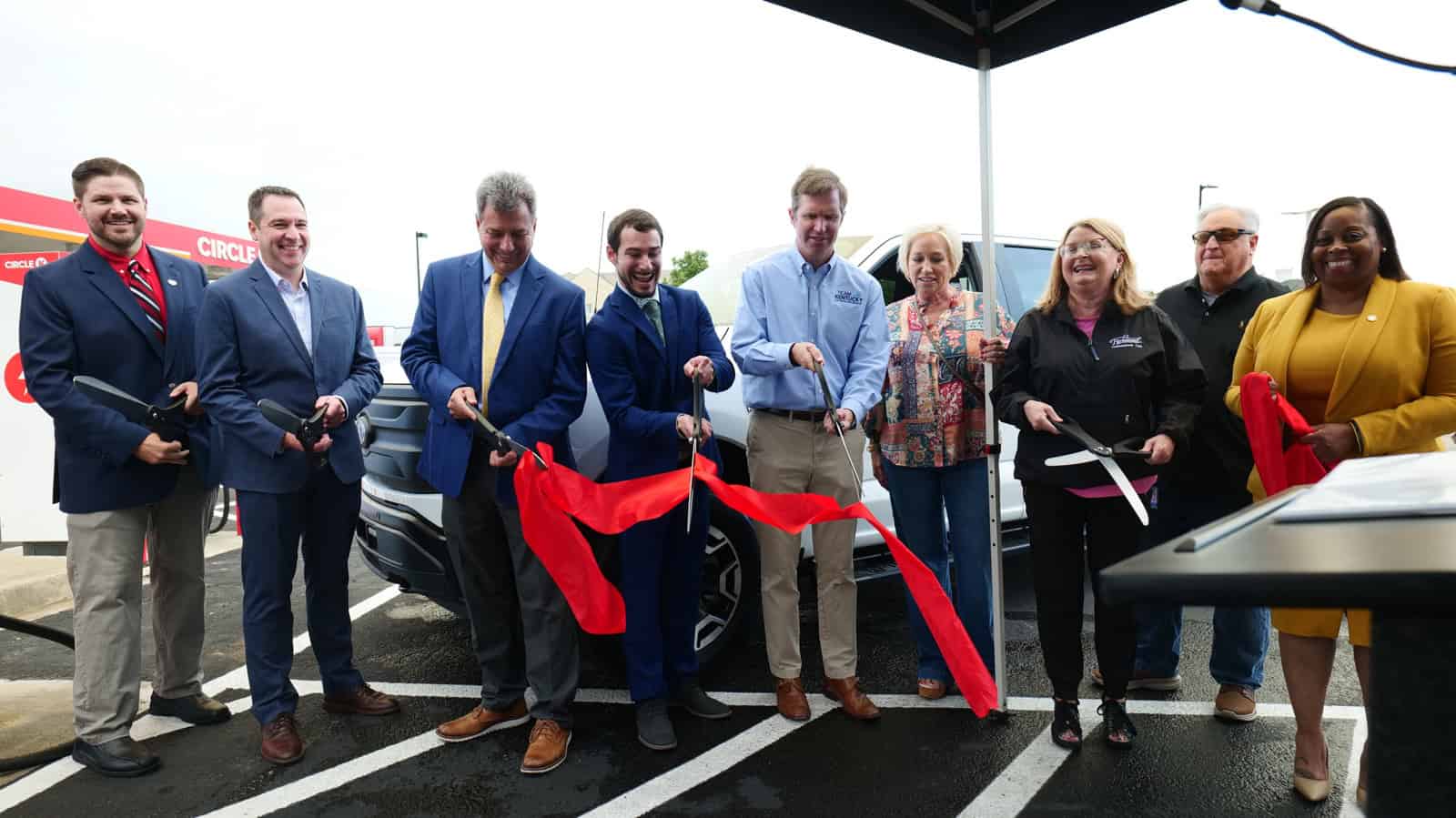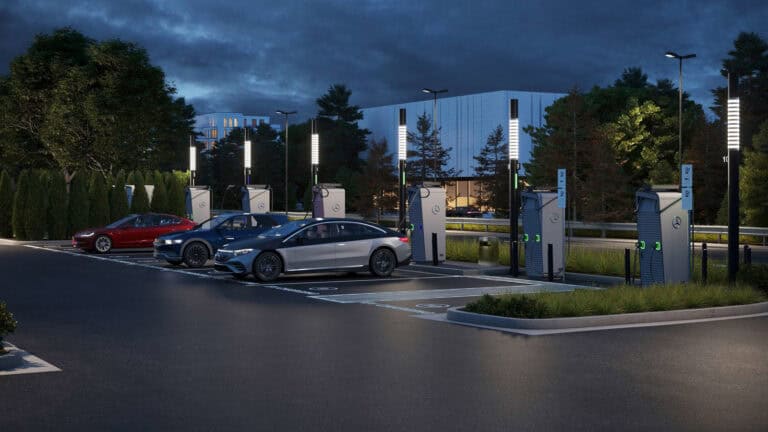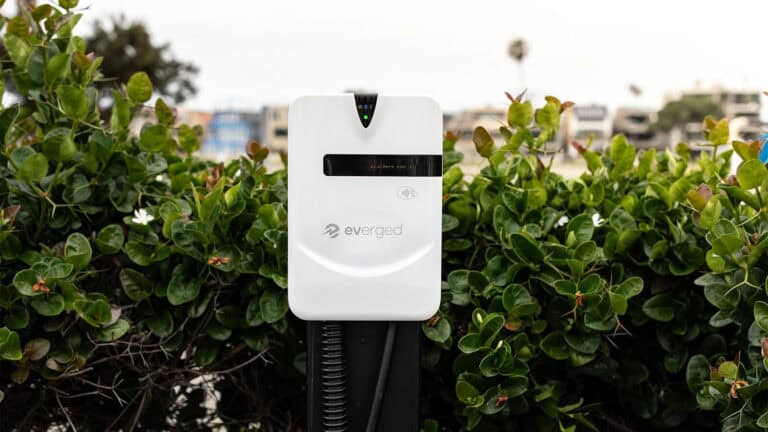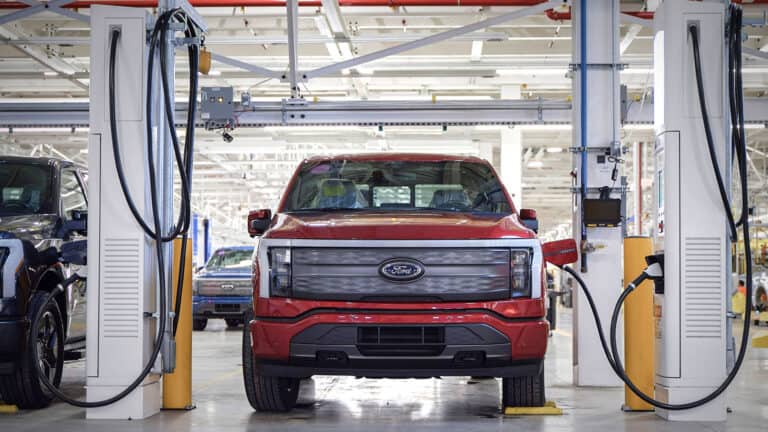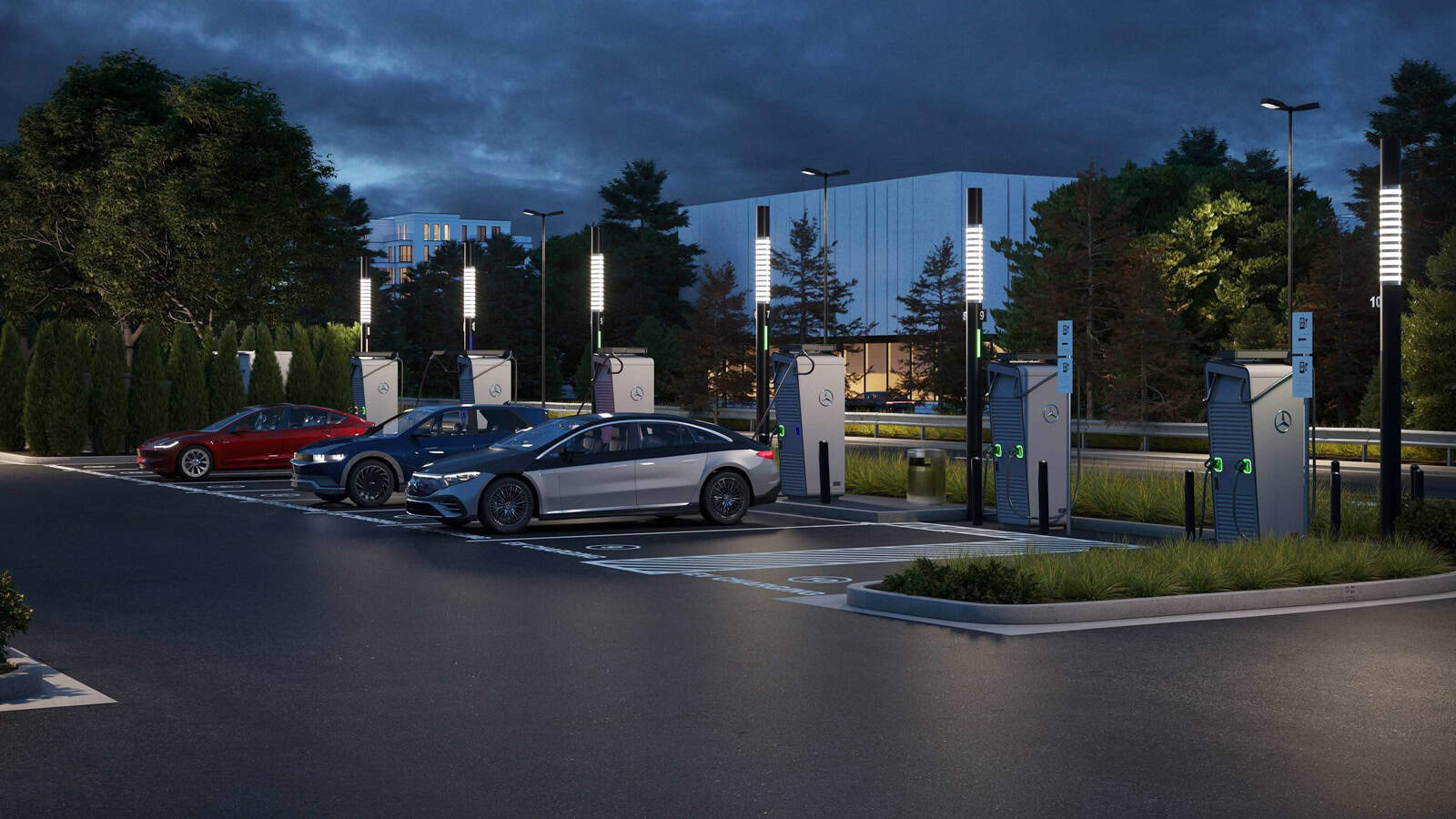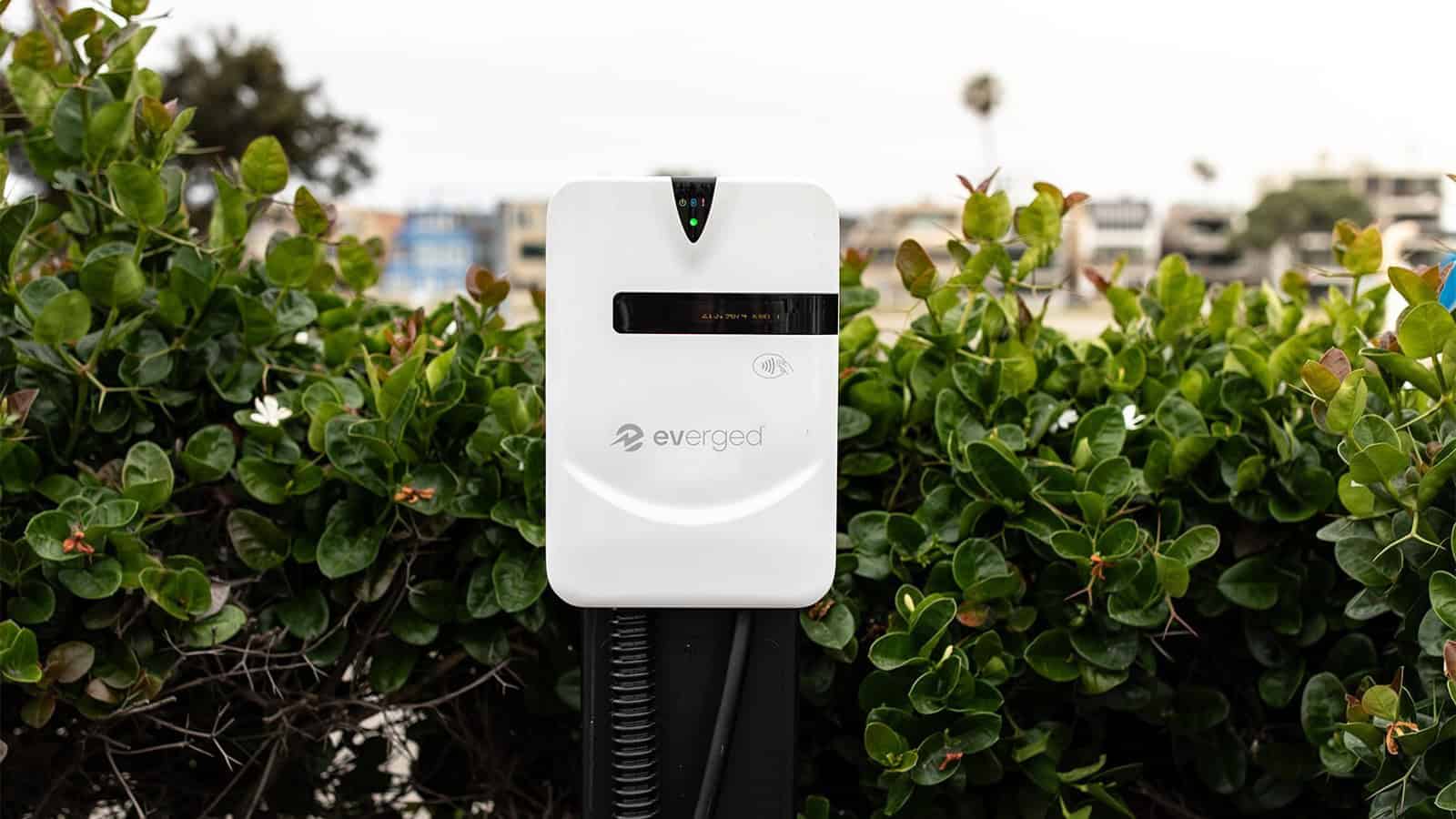- Kentucky’s first NEVI-funded EV charging station has opened in Richmond, supporting the state’s goal of net-zero emissions by 2050.
- The state plans to install 38 more fast chargers along 11 highways and eight parkways to support long-distance EV travel.
- The station currently uses the CCS1 connector and will add the NACS connector later this year, making it compatible with more EV models.
When it comes to electric vehicles, the conversation shouldn’t just be about how many chargers are out there, but rather, how reliable, accessible, and future-proof they are. Recently, Kentucky stepped up to the plate with the opening of its first NEVI-funded EV charging station at a busy Circle K in Richmond. This win for Kentucky is a big step toward making sure every driver can choose electric without stressing about where to find their next charge.
ADVERTISEMENT
Kentucky’s Net-Zero by 2050 Plans, 38 New NEVI-Funded EV Charging Stations
Think about it: by 2050, Kentucky plans to hit net-zero emissions. It’s ambitious, but it’s achievable with the right infrastructure in place. And this new station, backed by the National Electric Vehicle Infrastructure (NEVI) Formula Program, is a solid step in that direction. In addition to a flashy update to the EV charging map, it’s also part of a larger plan that includes 38 fast charging stations along 11 interstate highways and eight parkways, supporting long-distance EV travel across the state.
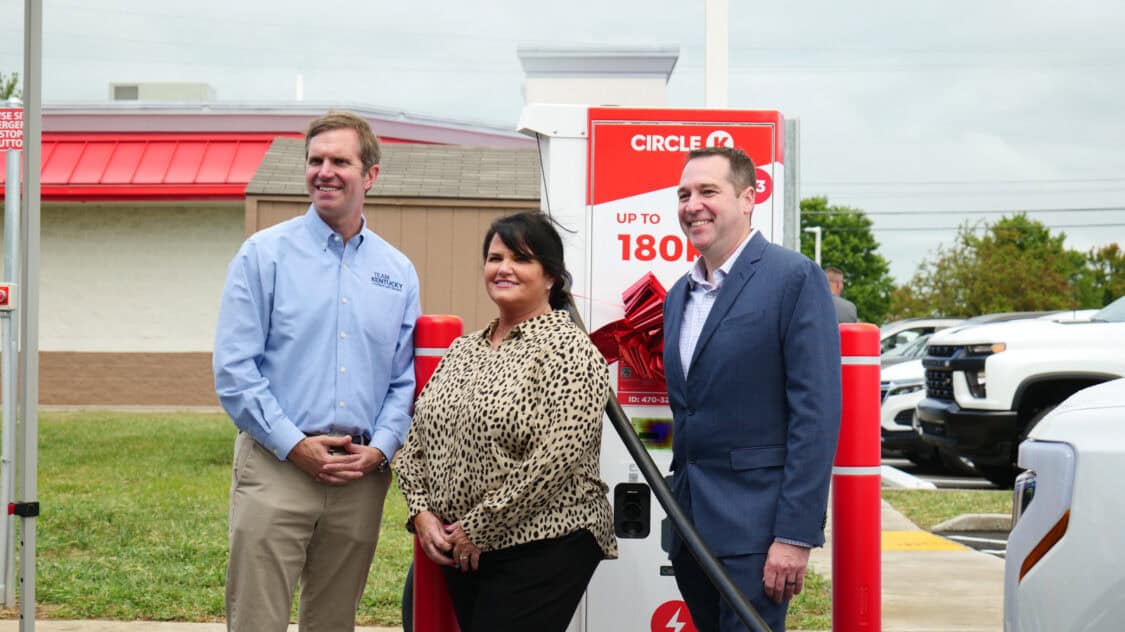
This is more than just installing a few plugs and calling it a day. The current station features the Combined Charging System (CCS1) connector, which is compatible with most EVs on the road today. And later this year, the station will add the SAE J3400, also known as the North American Charging Standard (NACS). Why? Because Kentucky is thinking ahead. The state wants to make sure that whether you’re driving a Tesla Model Y, a Ford F-150 Lightning, or one of the many new EVs set to hit the market, you’ll be able to charge up without a hitch.
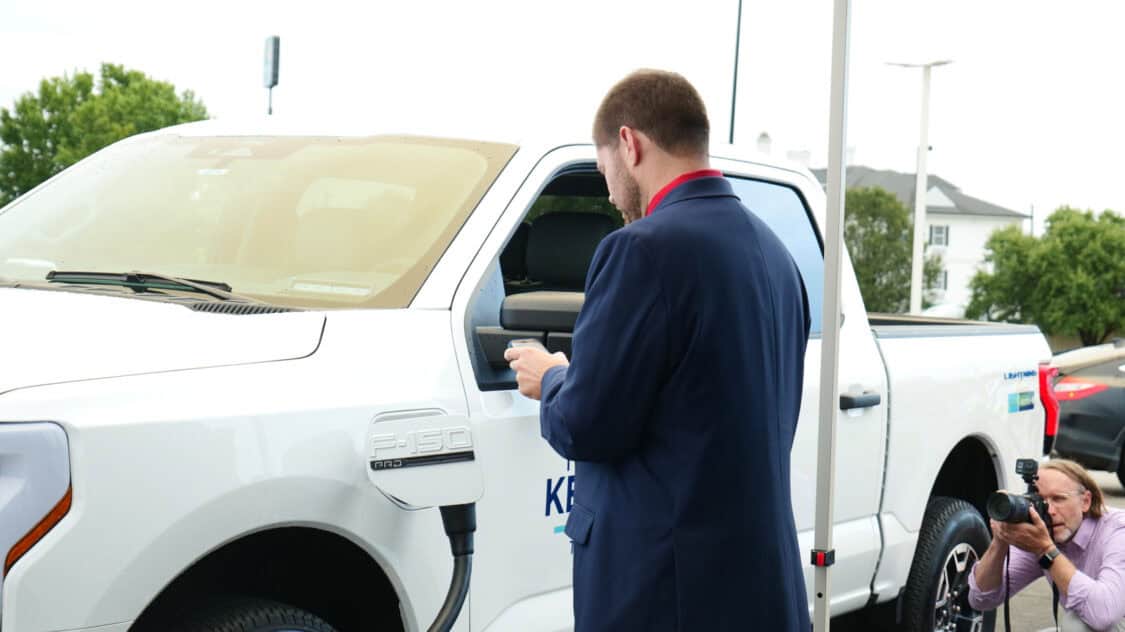
Kentucky Expands EV Charging Network, Supporting Growing Demand and Long-Distance Travel
According to Kentucky Transportation Cabinet Secretary Jim Gray, “The number of registered EVs in Kentucky continues to grow, and we want to ensure current and future owners have a reliable network of charging stations to support long-distance EV travel.” It’s a promise to build a cleaner, more accessible transportation system.
Kentucky is charging ahead, taking on the challenge with determination. Gabe Klein, Executive Director of the Joint Office of Energy and Transportation, echoed this sentiment, stating, “The Bluegrass State is galloping toward a greener future with the official opening of Kentucky’s first NEVI-funded EV charging station today.” Klein’s message goes beyond words. He’s urging other states to take note of Kentucky’s progress and encouraging federal programs to keep supporting this essential infrastructure.
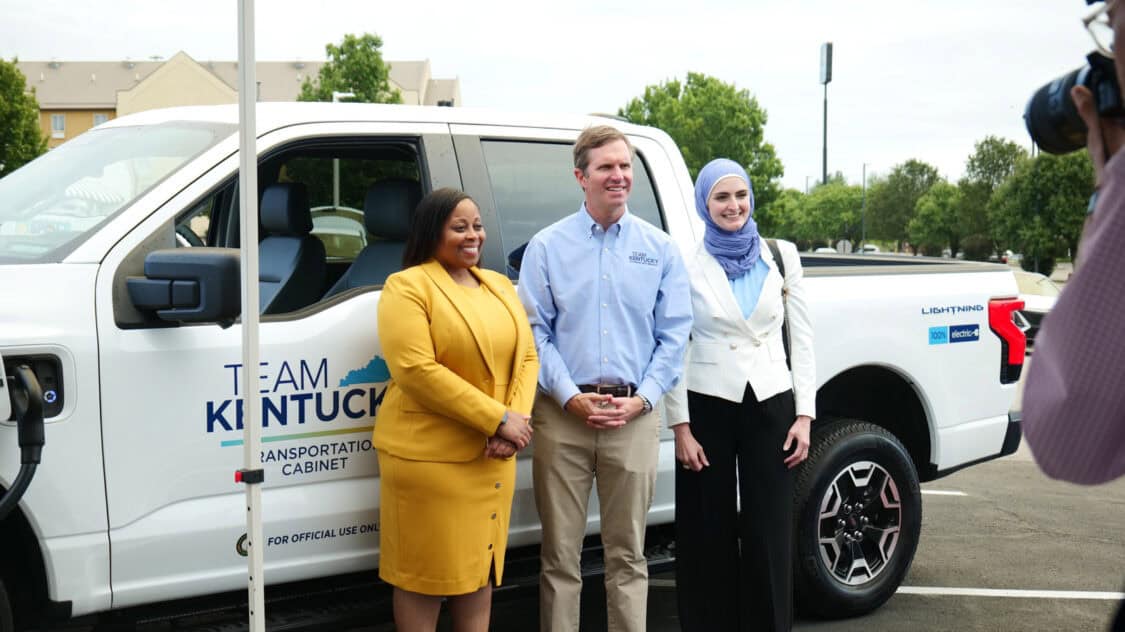
It’s time to confront a tough reality. The scattered network of EV chargers across the U.S. is holding back EV adoption. Drivers need the reassurance that a charging station is always within reach, especially on long trips through states like Kentucky, where rural areas can make you feel stranded. Plus, depending on slow, outdated Level 2 chargers (which can take hours to recharge) just doesn’t work when you’re on a tight schedule.
In addition to this station showing progress for Kentucky, it’s a lifeline for EV drivers traveling across the country. Since the start of the Biden-Harris Administration, the national network of chargers has doubled to 193,000, a massive improvement, but we’re still miles away from where we need to be.
ADVERTISEMENT
Expanding EV Charging Stations Bridges Gaps and Boosts Local Economies
Each new EV charging station, like the one in Richmond, helps bridge the gap between the growing number of EVs and the charging capacity needed to support them. It’s about ratios, not just raw numbers. Every new charger means fewer drivers sweating bullets as they watch their battery percentage tick down with no charger in sight.
Expanding our EV charging network not only benefits those who can afford new technology, but also helps build a reliable system that works for everyone, regardless of where they live or their income level. Programs like NEVI are essential in making EVs accessible to all, ensuring that rural and underserved communities are not left out as the country transitions to cleaner transportation.
And let’s not overlook the economic boost this brings. More charging stations mean more business for local communities, from increased foot traffic at nearby stores to jobs in construction and maintenance. It’s a win-win scenario that drives both economic and environmental benefits.

It’s Time to Push for More EV Charging Stations
But we need to keep pushing forward. We can’t let red tape or old ways of thinking slow down progress. It’s time to expect more from our leaders. More funding, better planning, and real accountability. EV drivers shouldn’t have to wonder if they’ll find a fast and reliable charging station when they need one. It’s time to turn promises into action and action into real results.
So, what’s the next step? It’s simple: keep building. Let’s push for more NEVI-funded stations across every state and make sure they’re equipped with the latest tech, like the NACS connector, so we’re ready for whatever the future of EVs throws our way. It’s time to move beyond the token gesture of a single charging station and build a network that truly serves the needs of all Americans. Because everyone, yes, everyone, deserves the freedom to drive electric.
ADVERTISEMENT

SOURCE | IMAGES: JOINT OFFICE OF TRANSPORTATION | KENTUCKY DEPARTMENT OF TRANSPORTATION, ELECTRIFY EXPO
FTC: We use income-earning auto affiliate links. Learn more.


